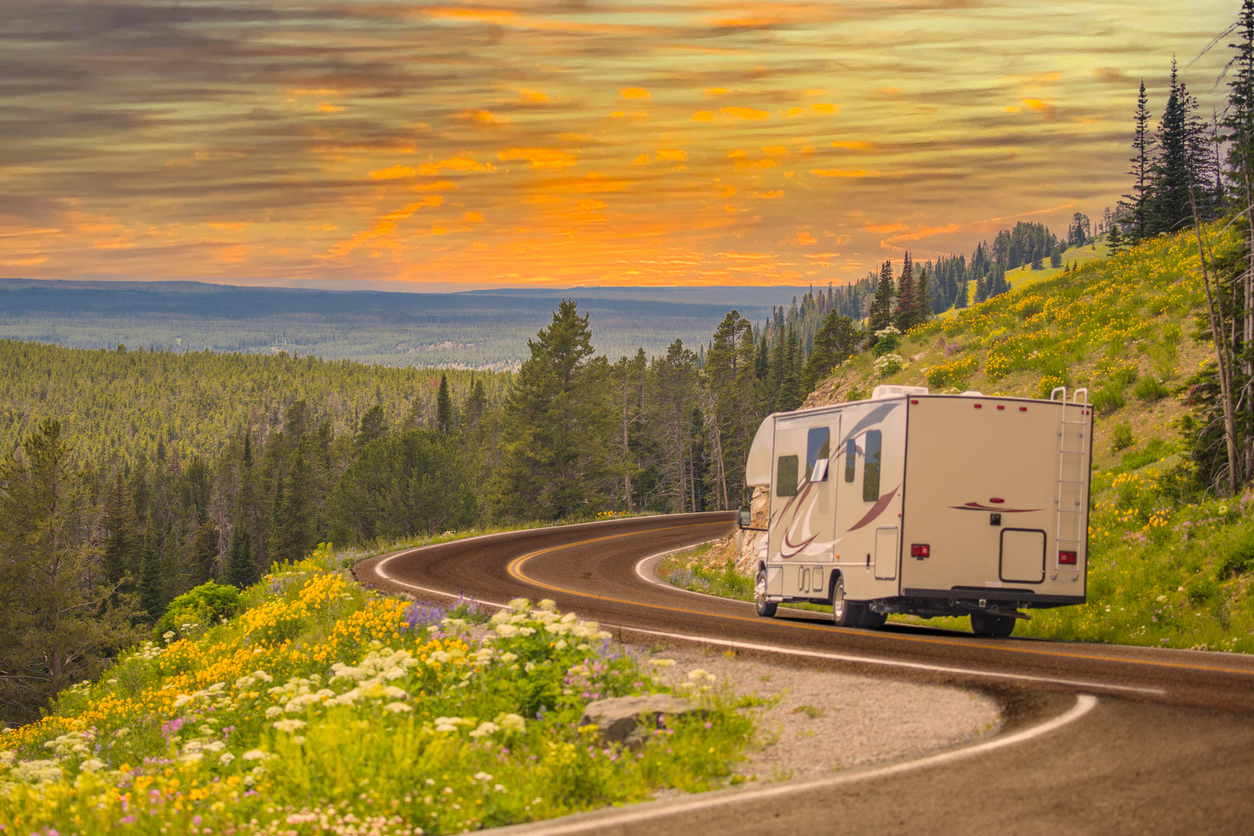As winter approaches in the Pacific Northwest, storing your RV properly is essential to protect it from the region’s wet and cold conditions. Moisture, freezing temperatures, and even pests can cause significant damage if your RV isn’t prepared for the winter months. Whether you plan to store your RV indoors or outdoors, following these best practices will ensure your RV stays in top condition and is ready for your next adventure when spring returns.
Choose the Right Storage Location
The first step in preparing your RV for winter is selecting the best storage location. The Pacific Northwest’s heavy rain and freezing temperatures can be tough on an RV, so it’s important to weigh your storage options.
- Indoor Storage: Storing your RV indoors offers the best protection from the elements, including rain, snow, and wind. It also helps prevent exposure to UV rays, which can cause fading and cracking of exterior surfaces.
- Covered Outdoor Storage: If indoor storage isn’t available, covered outdoor storage is the next best option. It shields your RV from most of the weather while still allowing airflow to prevent moisture buildup.
- Uncovered Outdoor Storage: If you must store your RV outdoors without a cover, be sure to choose a well-drained spot. Avoid parking near trees where branches, leaves, and sap can cause damage.
- Tip: Use a storage locator like SpareFoot to find indoor and outdoor RV storage options in your area.
Use a High-Quality RV Cover
If storing your RV outdoors, it’s crucial to invest in a high-quality, breathable RV cover to protect it from the rain and snow that are common in the Pacific Northwest.
- Breathable and Waterproof: Choose a cover that is both waterproof and breathable. This will protect your RV from moisture while preventing condensation buildup, which can lead to mold and mildew inside the RV.
- Proper Fit: Make sure the cover is designed for your RV’s size and shape to prevent it from flapping in the wind and causing scratches to the exterior.
- Tip: Secure the cover with straps or bungee cords to keep it snug and in place during winter storms.
Protect the Tires
Tires can easily deteriorate over the winter months, especially in wet or freezing conditions. Properly caring for your RV’s tires during storage can help prevent cracks, flat spots, and other damage.
- Elevate or Rotate Tires: If possible, use jack stands to slightly elevate the RV and take the weight off the tires. This helps prevent flat spots from forming. Alternatively, move the RV slightly every few weeks to redistribute the weight.
- Use Tire Covers: Cover your tires with RV-specific tire covers to protect them from UV rays, moisture, and freezing temperatures.
- Tip: Inflate your tires to the maximum recommended pressure before storage to further prevent flat spots from forming.
Ventilate and Dehumidify the Interior
Moisture is a constant concern in the Pacific Northwest, and it can lead to mold, mildew, and unpleasant odors inside your RV if left unchecked. Proper ventilation and dehumidification are key to maintaining a dry interior.
- Crack the Windows: Leave the windows slightly cracked (if safe to do so) to allow for air circulation. This prevents moisture from becoming trapped inside the RV.
- Use a Dehumidifier: Place a small dehumidifier or moisture absorbers like DampRid inside your RV to control humidity levels. These products help keep the air dry and prevent condensation from forming on windows and surfaces.
- Tip: Open interior doors and cabinets to allow airflow throughout the entire RV.
Winterize the Plumbing System
Even if you’ve properly drained and winterized your RV’s plumbing, a few extra steps will ensure no damage occurs during storage.
- Use RV Antifreeze: If you haven’t already, add RV antifreeze to the plumbing system to prevent any water from freezing in the lines or tanks.
- Drain Water Tanks and Water Heater: Ensure that your freshwater, gray water, and black water tanks, as well as the water heater, are fully drained.
- Tip: Leave all faucets open after draining to allow any remaining water to evaporate.
Protect Against Pests
Rodents and insects often seek shelter in RVs during the winter months. Take steps to keep them out and avoid damage to your RV’s interior and wiring.
- Seal Entry Points: Inspect the exterior of your RV for any gaps, holes, or cracks where pests could enter. Use steel wool or expanding foam to seal off potential entry points.
- Place Repellents: Place rodent repellents, such as mothballs or peppermint oil sachets, in key areas inside your RV. You can also use traps in areas prone to infestations.
- Tip: Check on your RV periodically to ensure no pests have gotten inside.
Periodic Checkups During Winter
Even if your RV is stored properly, it’s a good idea to check on it periodically throughout the winter to make sure everything is in order.
- Inspect the Cover: Make sure the RV cover is still secure and hasn’t shifted or been damaged during storms.
- Check Tires and Exterior: Ensure tires remain inflated and free of damage, and inspect the exterior for any signs of leaks, damage, or pest activity.
- Tip: If possible, run a small heater or dehumidifier inside your RV during your checkup to keep moisture levels under control.
Best Practices for Winter Storage in the Pacific Northwest
Storing your RV properly during the winter in the Pacific Northwest is essential for protecting it from the region’s wet and cold conditions. By following these best practices, you’ll avoid common issues like moisture damage, tire deterioration, and pest infestations. When spring arrives, your RV will be in excellent condition and ready for your next adventure.
Contact Adventure Trading RV Today
Looking to sell your RV before winter or ready to buy an RV for next season’s adventures? Contact Adventure Trading RV at 503-756-5601 or visit our Oregon City dealership. Our expert team can help you find or sell your RV with ease.


